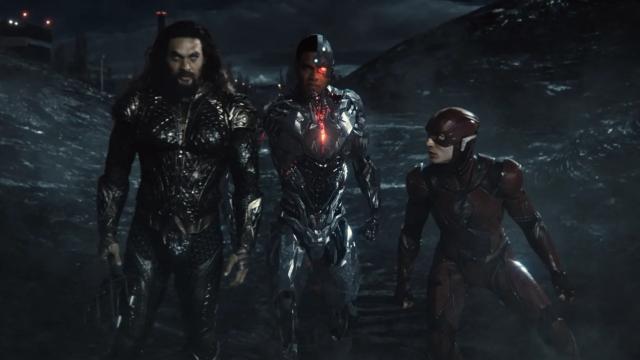Oscar-winning writer Chris Terrio was working on Star Wars: The Rise of Skywalker when he saw, for the first and only time, a film he was credited with writing: 2017’s Justice League, directed by Joss Whedon. “I drove to the studio and I sat down and watched it a couple of weeks before release,” Terrio said. “I immediately called my lawyer and said, ‘I want to take my name off the film.’”
The lawyer reached out to Warner but the request was not honoured because the film had already been locked and was getting ready for distribution. Terrio was then not invited to the premiere and decided he wouldn’t talk about the film publicly, until now with Vanity Fair.
[referenced id=”1686336″ url=”https://gizmodo.com.au/2021/04/reg-jean-page-speaks-on-his-reportedly-racially-motivated-rejection-from-syfys-krypton/” thumb=”https://gizmodo.com.au/wp-content/uploads/2021/04/09/jbw30dpvawivdlps9jkr-300×168.png” title=”Regé-Jean Page Speaks on His Reportedly Racially Motivated Rejection From Syfy’s Krypton” excerpt=”Among the many, many bombshells dropped in Tuesday’s revelatory, distressing Hollywood Reporter exposé on more of what Ray Fisher dealt with, both during and after Justice League, were allegations that Bridgerton star Regé-Jean Page had not been cast as Superman’s grandfather Seg-El in the 2018 Syfy series Krypton because he…”]
Terrio — who won an Oscar for Argo, and who not only wrote Justice League but Batman v Superman: Dawn of Justice as well — spoke about the experience of writing those films with Vanity Fair. In the interview, he explains at length how Warner Bros. cut 30 minutes out of his “Batman/Superman” movie (he explains he didn’t come up with the title Dawn of Justice and, in fact, isn’t sure who did) which all but ruined any nuance he was going for with the characters and perhaps doomed it critically. That situation then trickled down to Justice League, where he did his best to write a script that was more in line with what the executives wanted. That all fell apart, though, when Zack Snyder left the production and Joss Whedon came on.
“I didn’t realise how much of the film was going to be changed — or vandalised, in my opinion,” Terrio said. “It became clear as I spoke to various actors that it was a wholesale dismantling of what had been there before. I did not hear from anyone who said it was a pleasant experience.”
Terrio says Zack Snyder’s Justice League, which was recently released on HBO Max, is an excellent representation of the film he and Snyder set out to make. He doesn’t have a bad thing to say about Snyder but does admit that even when Snyder was on board, the film wasn’t a walk in the park.
“The Wonder Woman script wasn’t even finished when I wrote Justice League,” Terrio said. “So I had no basis to write Wonder Woman other than Batman/Superman. Themyscira didn’t even exist. I was never shown anything on the page for it. I didn’t know whether people could talk underwater. That was a thing that I had to ask, because I didn’t know if I could do underwater scenes with Aquaman and Atlanteans. It was all just from scratch because there had been no [solo] character films.”
He continued, “So Justice League needed to establish three of the characters; it had to create a long game mythology for the DC Universe. It had to resurrect Superman because he was dead at the end of the last movie. I just don’t know how you could do all that in under two hours. Maybe the 2017 release proved that you couldn’t.” All of which doesn’t even get into his experience on Batman v Superman: Dawn of Justice, including studio mandates that Batman brand people with a bat symbol, and an original ending where Batman did just that Lex Luthor, which Terrio fought.
“That ending was a point over which I explicitly went to the mat with the studio again and again,” he said. “I argued that Batman cannot end the movie continuing this behaviour, which amounted to torture, because then the movie was endorsing what he did.”
Suffice to say, what fans see on screen in Snyder’s films is only half the story. The other half took place in executive boardrooms. Head to Vanity Fair to read more of the enlightening interview.
